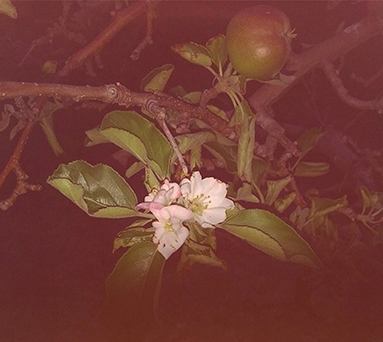Question: Re: yr recent post on self-understanding: so should we forgo the Delphic maxim urging us to know [ourselves]? Please expand.
The idea that you should know yourself is more complicated than at first it might seem.
It makes me want to start walking from Thomas Mann. Imagine a writer like that as bearing an enormous, transparent crystal in which are invisibly etched all the tendencies of human behavior. When it comes time for him to write a novel, imagine him holding that crystal up to one eye and transcribing the world he sees through it. When seen through this crystal, the random walks that people take through life are revealed as directed through channels carved by the passage of previous humanity. In this way, life acquires meaning and our lives take on purpose only when they are seen as typical. Uniqueness dissolves into senselessness or else expires when exposed as a re-enactment of the past. That’s psychology’s one and only thesis.
Further out, in a less rigorous suburb than psychology’s program downtown, you can think of yourself as being inhabited by the thoughts, opinions and reactions of other people. Think of OW Holmes Sr., who has a bit that imagines the laws of psychology as the minds of the dead suffusing our thoughts with the tendencies of their own:
[Those] who have long been dead, may enjoy a kind of secondary and imperfect, though self-conscious life in those bodily tenements which we are in the habits of considering exclusively our own.[...] Live folks are just dead folks warmed over.
Or Nietzsche, who’s out there hanging on to the exterior of the county line:
Thoughts are the shadows of our feelings—always darker, emptier, and simpler.
Beyond even Nietzsche, beyond any received image of the censer through which the smoke of self emanates, you’re wholly in the woods. Here (and whether you want to admit it or not, we’re all out here) a certain playfulness is called for. Marcel Duchamp was asked about criticism once and he made it very clear which came out on top when the desire to know was pitted against the object of inquiry:
Interviewer: So you feel like what constitutes new art today like [Pop Art] is more Coca-Cola than say, Cézanne?
Duchamp: You see, as much as possible I never try to judge or criticize anything. When you see something that you haven’t seen before, like this Pop art—and I’m just talking about myself now—I would never think of judging or deriding or criticizing because what can you prove with your words? The words you use making fun or making judgments have absolutely no value. They are just taunts, a pack of words. At least with a painting it’s there, or the thing is there in flesh and you do what you want with it. Just turn your back to it if you want but don’t bother writing about it or thinking about it.
